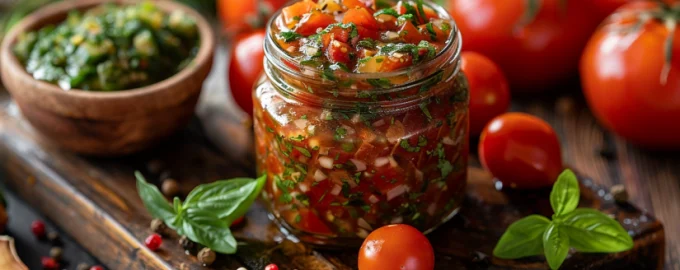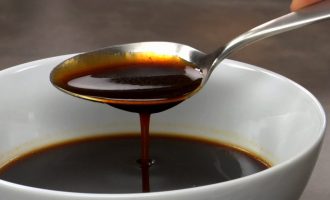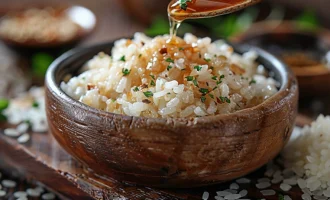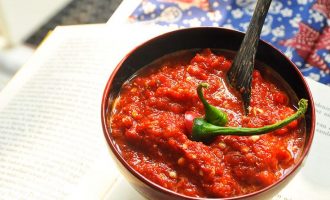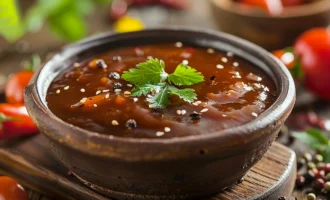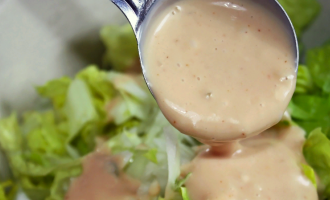Demiglace sauce, a rich brown sauce that is a cornerstone of classic French cuisine, is renowned for its deep, concentrated flavor. Originating in the 19th century, it serves as a foundation for many sauces and dishes within the French culinary tradition. Traditionally, demiglace is made by slowly reducing a mixture of equal parts espagnole sauce (one of the five mother sauces) and brown stock, usually veal, along with additional herbs and seasoning. The resulting sauce is glossy and thick, with a potent flavor that enhances steaks, roasts, and a variety of other dishes. Given its complexity and long preparation time, demiglace is considered a hallmark of fine dining and culinary expertise.
- Veal stock 2 l
- Espagnole sauce 2 l
- Carrot 50 g
- Celery 50 g
- Onion 100 g
- Fresh thyme 2 g
- Bay leaf 1 g
- Black peppercorns 5 g
- Salt to taste
- In a large pot, combine the veal stock and espagnole sauce. This blend is the base of your demiglace.
- Add the diced carrot, celery, onion, thyme, bay leaf, and peppercorns to the pot. These ingredients will infuse the sauce with additional flavors as it reduces.
- Bring the mixture to a boil over medium heat, then reduce the heat to low. Allow the sauce to simmer gently, uncovered, stirring occasionally. The goal is to reduce the volume by half, which can take several hours. This slow reduction process is key to developing the sauce’s rich flavor and velvety consistency.
- Once reduced, strain the sauce through a fine-mesh sieve or cheesecloth to remove the solids. Press on the solids to extract as much liquid as possible.
- Return the strained sauce to the pot, bring it to a gentle simmer, and taste for seasoning. Add salt as needed, but do so sparingly, as the flavors are already highly concentrated.
Storage Tips
Demiglace can be cooled and then stored in an airtight container in the refrigerator for up to a week. For longer storage, it can be frozen in small portions and thawed as needed, lasting for several months in the freezer.
Useful Properties of the Main Ingredient
Veal stock, the backbone of demiglace, is rich in gelatin, which not only contributes to the sauce’s luxurious texture but also offers nutritional benefits. Gelatin is known for supporting joint health and improving digestion.
Interesting Facts
- The term “demiglace” literally means “half glaze” in French, referring to the method of reducing the mixture to half its original volume to achieve a concentrated glaze.
- Making demiglace sauce is a labor of love, historically taking up to two days for the espagnole sauce and stock to be prepared and reduced separately before being combined.
- In modern kitchens, chefs often create variations of demiglace using different types of stock (such as beef or chicken) to suit various dietary preferences and dishes.
This classic demiglace sauce recipe, while time-consuming, results in a profoundly flavorful and versatile sauce that can elevate simple dishes to gourmet status. Its rich history and complex composition make it a cherished element of traditional French cooking and a testament to the culinary arts.

